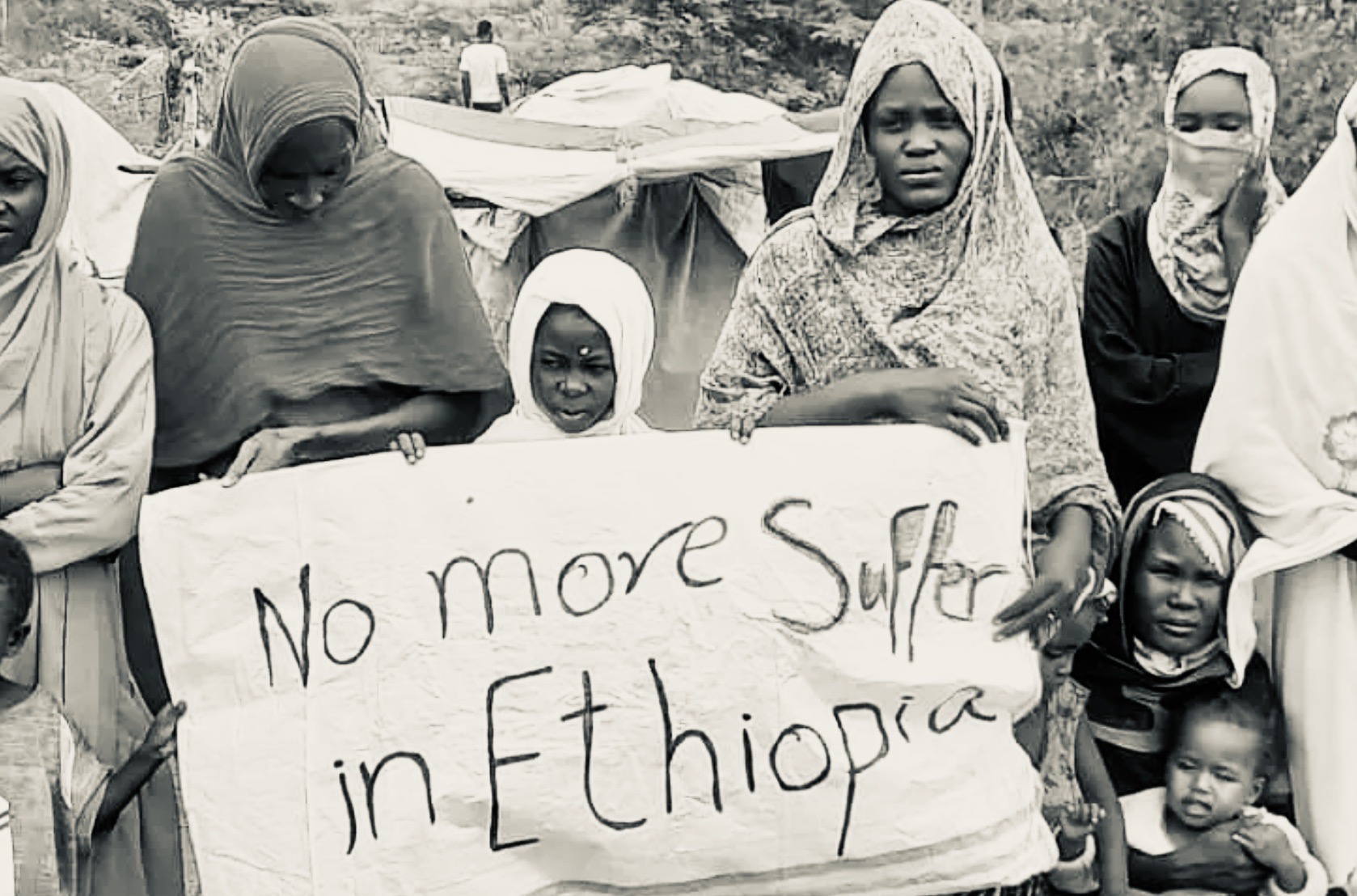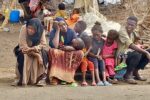Death rocks the new home for 6,000 Sudanese refugees in Ethiopia
6 August 2024
On July 20, Minoma Adam, a refugee at the Awlala Refugee Camp, fell victim to three militiamen’s bullets after she held on to her meagre supplies, pleading that the food was for her five children. The gunmen then turned the gun on her husband, Omran Mohamed, who tried to intervene in the scuffle and later succumbed to the gunshot wounds. After receiving a shrapnel wound to the forehead, their eldest child is still handicapped.
The couple, who were traders vending tea and fresh farm produce in El-Geneina, the capital of West Darfur State, before fleeing the 15-month war, were part of the 6,000 displaced persons who had camped in a makeshift camp in the Awlala forest in Amhara, Ethiopia.
Amhara, known for its frequent armed conflicts and internet restrictions in the past year, did not provide the sanctuary they expected. They joined other refugees from the Kumer Camp on May 1, 2024, and trekked to the local office of the United Nations High Commissioner for Refugees (UNHCR) in Gondar to protest the deplorable humanitarian conditions and rampant insecurity. They were intercepted by the authorities and opted to settle in the forest until their needs were met.
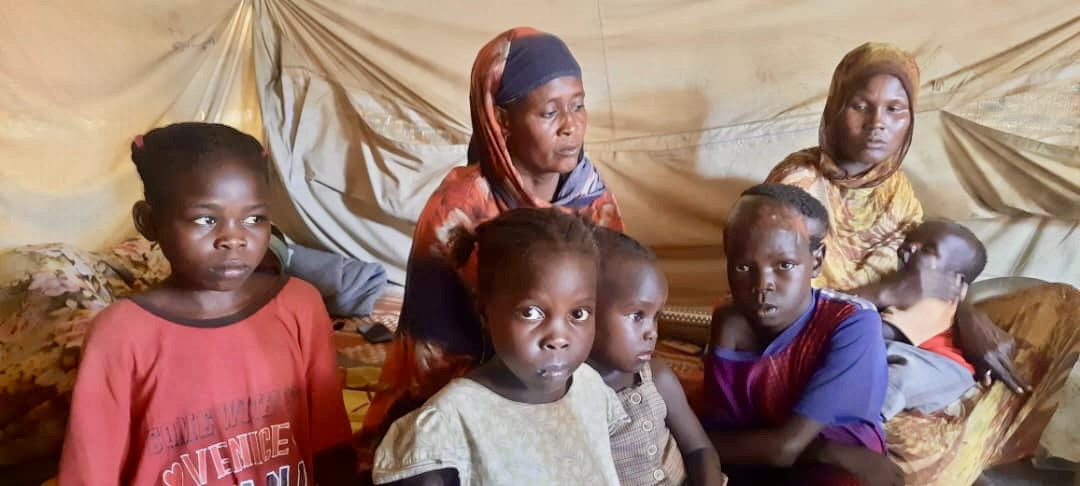
Initially, everything seemed fine for a few weeks, despite the scarcity of food and the increased spread of diseases during the rainy season. They enjoyed the presence of the police and military deployed to offer them protection, a privilege that was withdrawn following the murder of ten police officers on July 17 in the Kumer Refugee Camp. The militias took advantage of the vacuum, launching an attack three days later, in a tragedy that left the couple dead.
In the aftermath of the tragedy, Fatima Ali and Shadia Abdalla, who adopted the deceased couples’ children, gathered their last reserves of strength to help them. Fatima’s greatest challenge now is how to share her breast milk between her 18-month-old and the lastborn of the deceased couple. She is still concerned about her milk supply, which has shrunk as a result of inadequate and balanced meals. The spectre of hunger looms. Her fears are valid, as the camp lost a four-month-old boy on July 26 from malnutrition.
Osman Mohamed, a merchant from Khartoum, is tending to a bullet wound on his right thigh further inside the camp. He sought medical aid from a doctor residing in the same forest, who stitched him up with three sutures, assuring that surgery was necessary. “I lost my son at the Ethiopian hospital in Gendewuha last year. He suffered from malnutrition, but the doctors did not take care of him. I no longer trust them,” details the fifty-year-old.
Since his injury, he admits to having cried about fifteen times, “not because of the wound’s pain, but because of the pain in my heart. We have no answer to give our children when they ask us to live in safety.” Only his two youngest children have stayed with him; the three older ones have returned to Sudan despite the ongoing conflict that is creeping closer to the Ethiopian border after the Rapid Support Force (RSF) recently took over the state of Sennar.
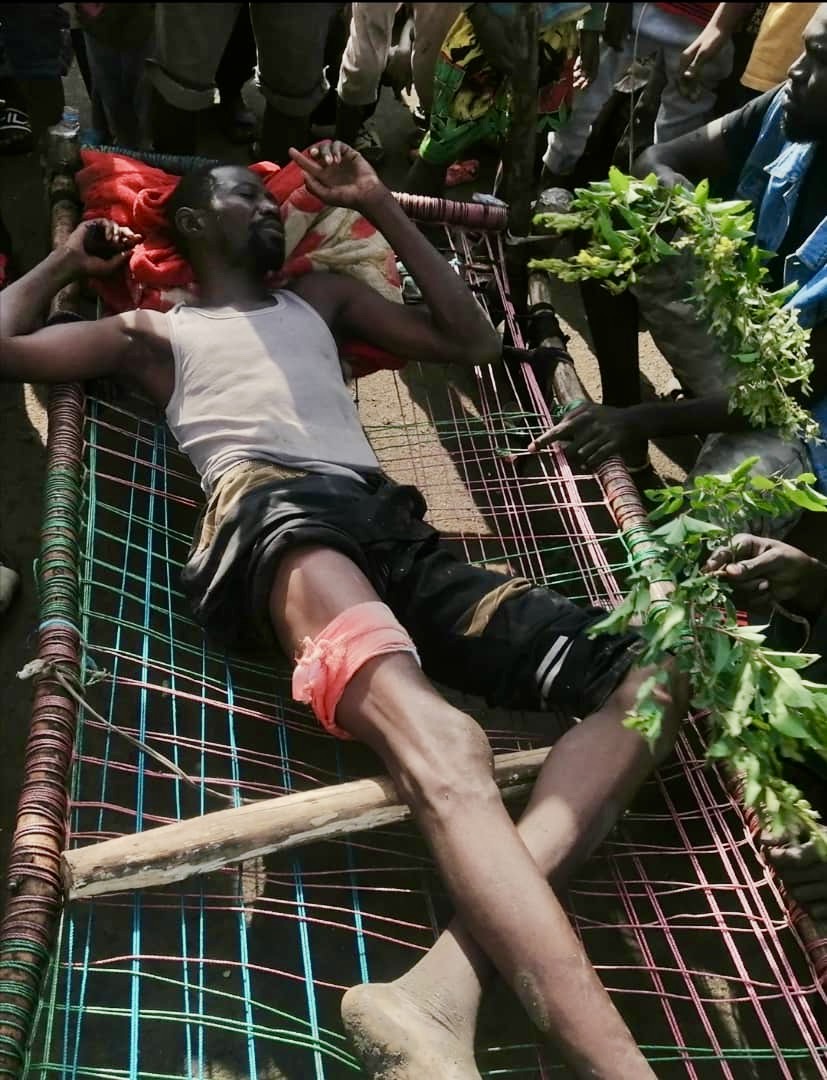
Gunmen attack the second time
Before they could make sense of the tragedy and pick up their pieces, the gunmen struck again, five days later. The renewed attack left 15 people injured, with one in a critical condition.
“We went to hide in the river. The children didn’t sleep all night. The younger ones do not understand what happened to their parents. I tell them they are in heaven,” recounts Fatima. The next morning, the camp residents met to discuss a way forward in the wake of the attacks and killings.
“We agreed that we will never go to the Aftit camp,” reports Mohamed Hamid, who participated in the consultation. “Refugees who have recently been relocated to this site told us that the UNHCR and the local government do not provide any services there. Due to the muddy ground that the rains have caused, they are far from the market and the city and find it difficult to move. We continue to demand to be relocated to another country,” Hamid says, a former UN employee.
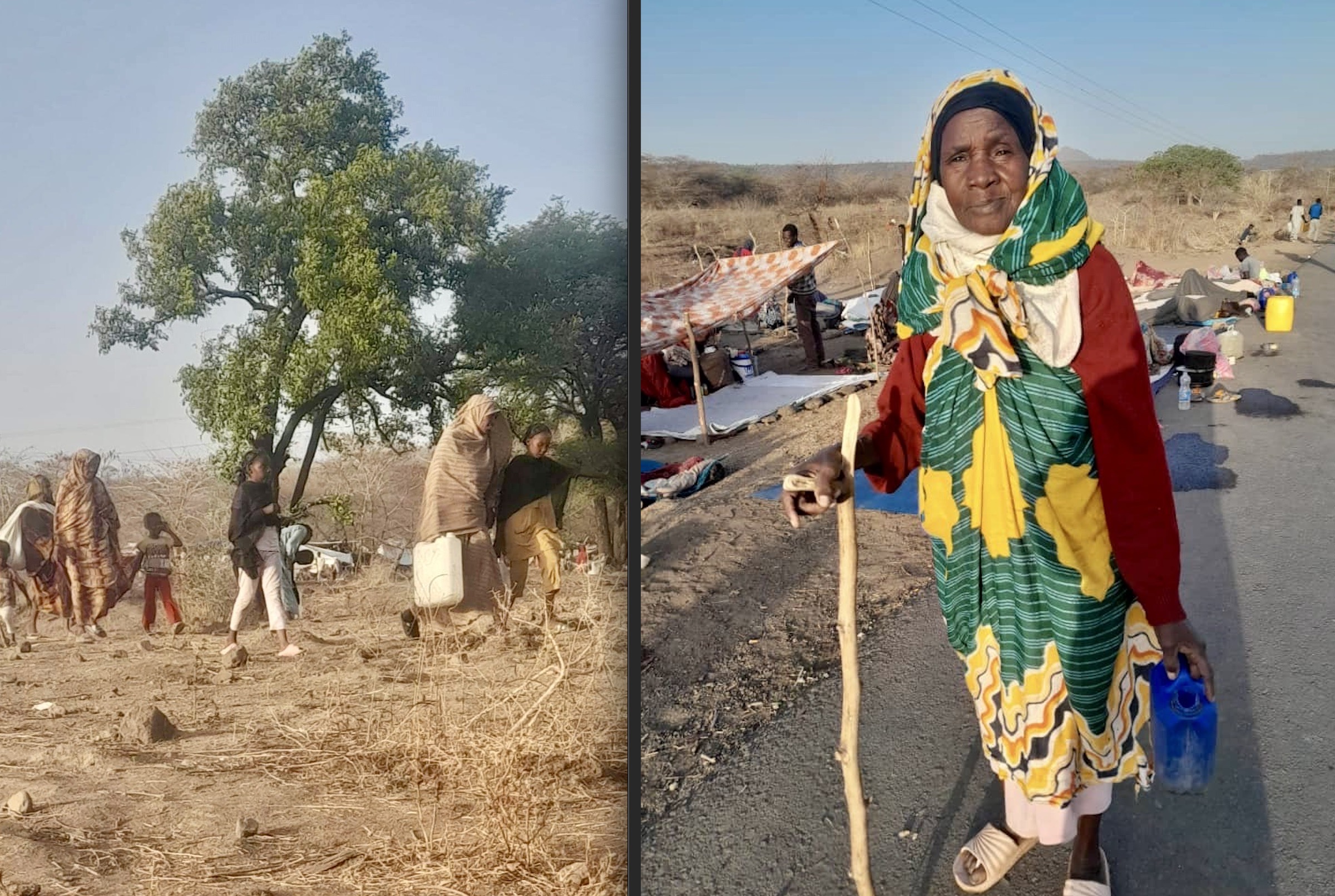
Broken trust
The break of trust between the Sudanese refugees and the local authorities deters the survivors from occupying some Ethiopian regions, which are free from sporadic attacks by armed groups. The July 20 attack has further deepened this divide.
“Representatives from the Refugees and Returnees Service (RRS) came to meet us six hours before the attack. They wanted to convince us to board the dozen buses they brought to take us to Aftit. We refused, so they said they would take action against us,” asserts Hamid.
Many residents of the Awlala forest share his belief that the government paid the militiamen to frighten them. “The law prevents the authorities from forcibly transporting us with the army and federal police. So they devised a diabolical plan to terrify us. Unfortunately, there were injuries, including one in serious condition, who is still being treated at the Gondar hospital,” adds the refugees’ spokesperson. These allegations could not be verified since the RRS did not respond to our interview request.
Refugees contacted by Ayin assert that the attackers are not Fano militiamen rebelling against the federal government but rather criminals who systematically steal phones, clothes, and food. In this region, many civilians are armed. It was simple villagers equipped with guns that the government had tasked with watching over the Awlala camp, who were responsible for numerous blunders until many Sudanese eventually deserted the camp.
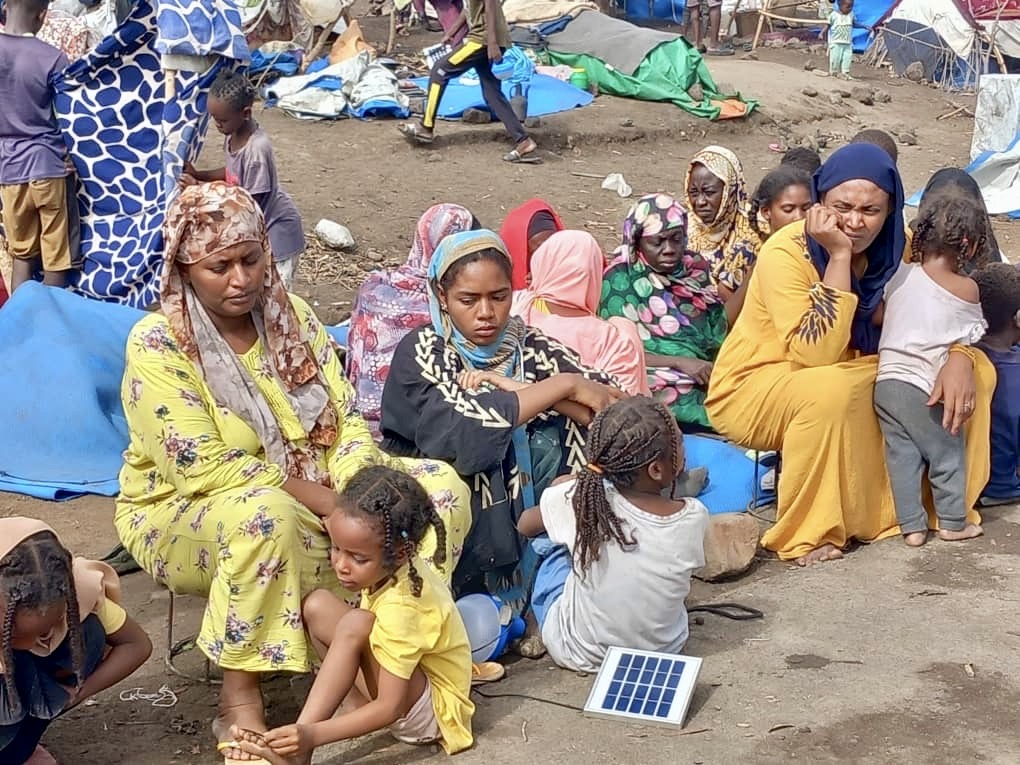
A New “Safer” Camp
Since that date, 1,514 individuals from the camps have been redirected to the Aftit Refugee Camp. This new site is “safer,” according to Sona Dadi, a communication assistant at the UN Refugee Agency (UNHCR) in Ethiopia. The camps, she says, have a capacity of 12,500 refugees. However, the refugees in the Awlala forest refuse this offer.
“The authorities have repeatedly asked the refugees to leave [the forest] for their own safety. Refugees must comply with Ethiopian government laws and regulations,” urges Dadi.
“There are no words to describe this situation. The way we live, how we suffer, and the challenges we face. It’s unbelievable,” says Fatima Ali, the mother of four who has come to the aid of Minoma and Omran’s children. Like the deceased couple, she is from El-Geneina, the capital of West Darfur. Together, they left Khartoum when the fighting gave them no choice.
“The children have stopped playing because they are constantly scared. As soon as they see someone with a gun, they are afraid,” adds Shadia Abdalla , the mother who volunteered to feed the youngest orphan.
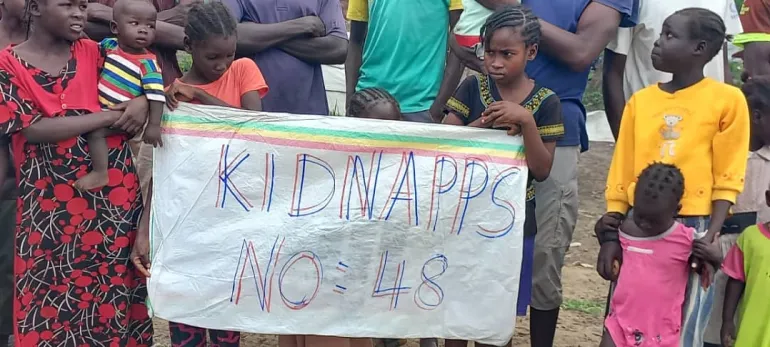
Rampant kidnappings
The bandits have resorted to kidnapping refugees and aid workers in exchange for ransoms. Their latest victim was a doctor from the Awlala forest who was detained for twelve days while working as a translator for the NGO World Vision before the doctor was finally released.
No relief seems to be in sight.
“The UN security team temporarily suspended humanitarian movements along the road from Metema to Gondar because the security situation along the Kumer and Awlala axis was deteriorating, which severely hampered our ability to distribute aid,” Dadi told Ayin. “The suspension has impacted the provision of services at the Kumer and Awlala sites.” The UNHCR officer insists on the need for the refugees in the Awlala forest to move to the newly inaugurated camp.
“We cannot be safe in Ethiopia,” Abdalla said. “Everywhere, we will encounter the same people and face the same problems. I travelled from Khartoum with my husband, who suffered a gunshot wound, in search of government protection, but it is impossible to find protection here. I beg humanitarian organisations to evacuate us outside of Ethiopia.”
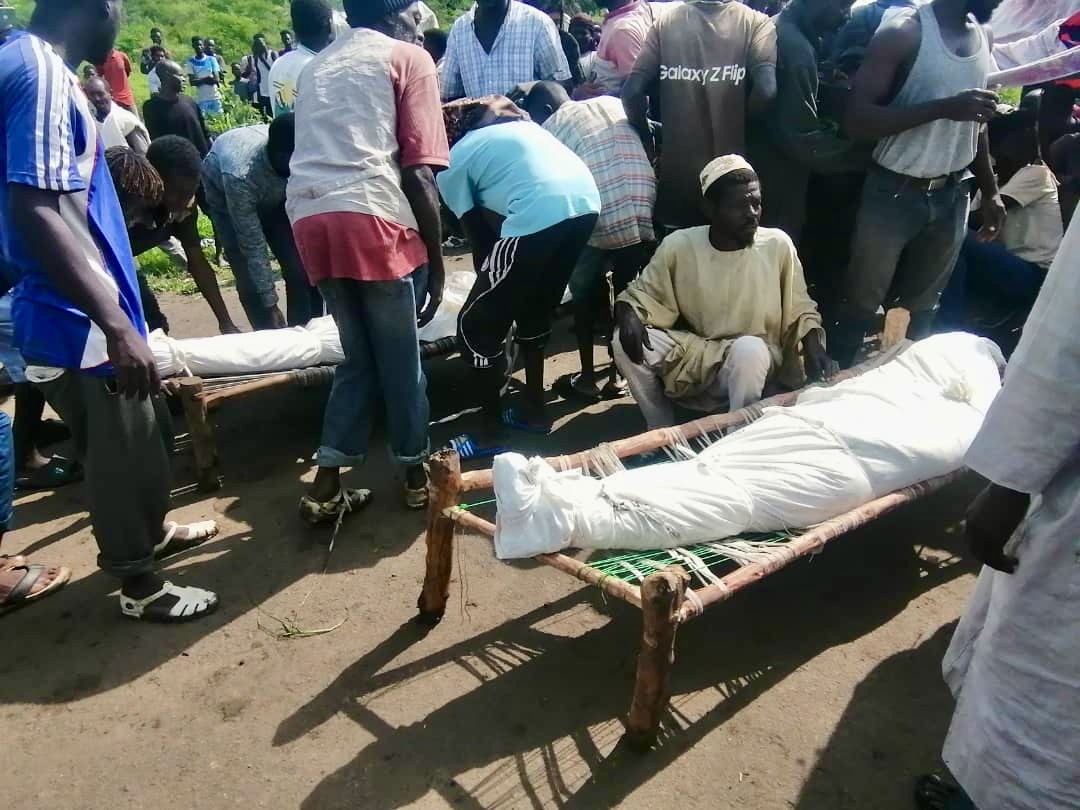
More violence
On August 2, a new attack by militias claiming to be Fano, the rebels who have been at war with the Ethiopian government for a year, left five people injured. Lacking an ambulance, their peers transported them by three-wheeled motorcycles to the Gendewuha hospital. Desperately, more and more refugees are returning, alone or in small groups, to Sudan despite the ongoing fighting. A cousin and an uncle came to pick up the five little orphans to take them back to their country, two weeks after their parents disappeared.
Some of the refugees in Awlala Forest say they plan to try and return to Sudan. Other Sudanese from the forest have chosen to join the Aftit camp. A humanitarian worker told Ayin, on condition of anonymity, that some refugees prevent their colleagues from reaching the site. “Some have come in secret because they are so afraid of reprisals,” said the source.


